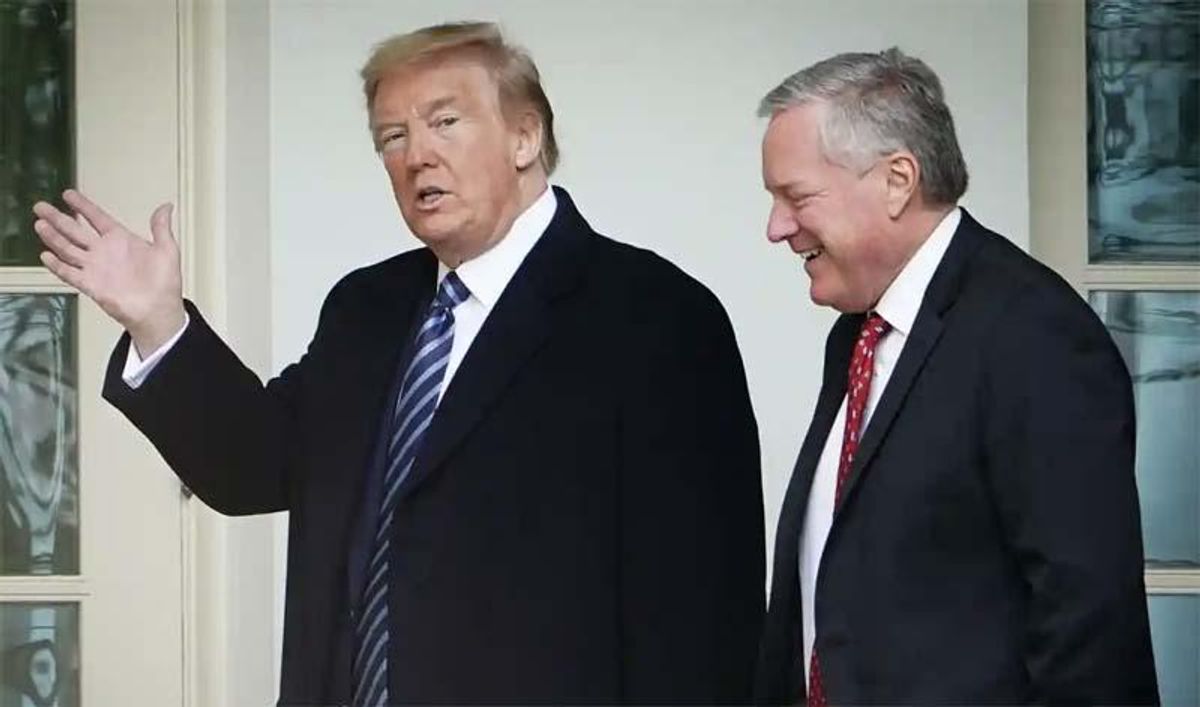
A federal appeals court will consider what could be Mark Meadows' final chance to separate his Georgia criminal case from Donald Trump.
The former White House chief of staff has so far been unsuccessful getting his racketeering case removed from Fulton County to federal court, but he will try again Friday morning before a three-judge panel at the U.S. Court of Appeals for the 11th Circuit, reported The Guardian.
"Removing the case from Fulton County superior court to federal district court would bring Meadows the ancillary benefit of his criminal case eventually reaching the conservative-leaning U.S. Supreme Court," reported the publication's Hugo Lowell. "It could also undercut the RICO case as a whole, which would benefit Trump."
Trump and Meadows were charged in August with 17 others in a sprawling indictment related to their efforts to overturn the former president's 2020 election loss, and three former Trump lawyers – Sidney Powell, Kenneth Chesebro and Jenna Ellis – and local GOP operative Scott Hall have already agreed to plead guilty and cooperate with investigators.
Prosecutors have so far not appeared to be willing to extend a plea deal to Meadows, who arranged the infamous phone call from Trump to Georgia secretary of state Brad Raffensperger, and seem to favor trying the ex-president and his former chief of staff alongside one another as co-conspirators.
"That outcome – having to go to trial at the same time and alongside Trump – is widely seen as the worst for Meadows because of the potential guilt by association," Lowell wrote. "His only real option to avoid that fate, as things currently stand, is to transfer his case to federal court and go to trial alone."
Meadows argued at his evidentiary hearing in September that his alleged crimes were related to his official duties at the White House, which would give him immunity and prevent him from being prosecuted at the state level, but the federal judge who reviewed that evidence found that his actions were undertaken to benefit Trump as a political candidate and not as president, and rejected his motion.
U.S. District Judge Steve Jones cited the Hatch Act, which bans executive branch officials from using their authority to influence or interfere with election results through partisan political activity, and determined that Meadows had no constitutional basis to involve himself in state election procedures.




